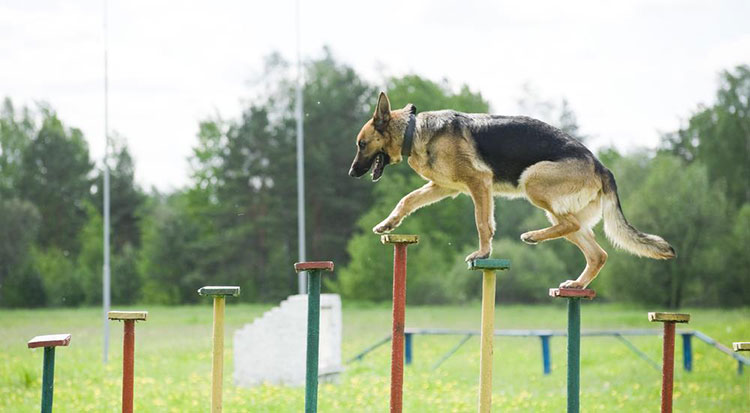
If you’ve ever started looking for a trainer in a new city, or a new trainer in your old city, you know how overwhelming the process can be!
The first step is to do your research. If you’ve gotten a referral from someone you trust, that’s a good place to start! If not, start asking around. If you’re looking to learn a new sport, go and watch competitions and ask the people in them where they train and who they train with. You’ll be surprised how many trainers there are when you start digging!
Once you have a list of names, there are some things you can find out from them on the phone before you go any further:
1. Do they teach what you want to learn?
If you’re looking for pet training (keep you dog out of the pound type stuff), you don’t necessarily want a competitive obedience trainer. If you want to compete, a pet class might get you started, but it won’t give you the details you need about your sport of choice. Find out what the trainer specializes in, what they compete in and how long they’ve been doing this.
2. What training methods do they use?
Be aware they all know about “positive reinforcement” – but do they use corrections? Ask specific questions about how and when they would use corrections. What exactly do they mean by “correction”? If the dog got distracted and went to visit another dog during a recall, what would they do? Are you comfortable with the answer? Asking the same question of a number of trainers will give you a good idea about who you’d like to work with.
3. What equipment do they use?
That will tell you a lot about what methods they use. Clickers, choke chains, pinch collars, buckle collars, head collars, harnesses – what do they start out with and under what circumstances would they switch to something else? Beware of the trainer who only uses one type of collar, every dog is different and there are good reasons for changing sometimes!
4. Is the trainer easy to talk to?
If you find a trainer you “click” with (no pun intended… well, maybe just a little) it can be a rewarding long term relationship – they get to know your dogs and you can trust them to help you out with difficulties.
5. Once you’ve found someone who seems like a good match, go and watch a class.
See how the dogs like the trainer (you’ve heard the saying “you can’t fool dogs and small children?” there’s truth in that!) If they won’t let you watch a class, move on. But don’t expect to bring your dog to watch that class, it would be too disruptive for the dogs in the class.
And now the hardest part of all… deciding just what you want to DO with your dog! There are so many options, there’s something for everyone. Go, find a trainer, enjoy the time you spend with your dog, and the pride you feel when your dog impresses you so much with his responsiveness and ability! It’s a great feeling!
Important Tags
Dry dog food | Different Dog Breeds Dog food advisor |Greenies Pill Pockets |sensitive dog breeds |neighbors dog won’t stop barking|hypoallergenic dog treats recipes|most trainable dogs |dog kennel ideas|




